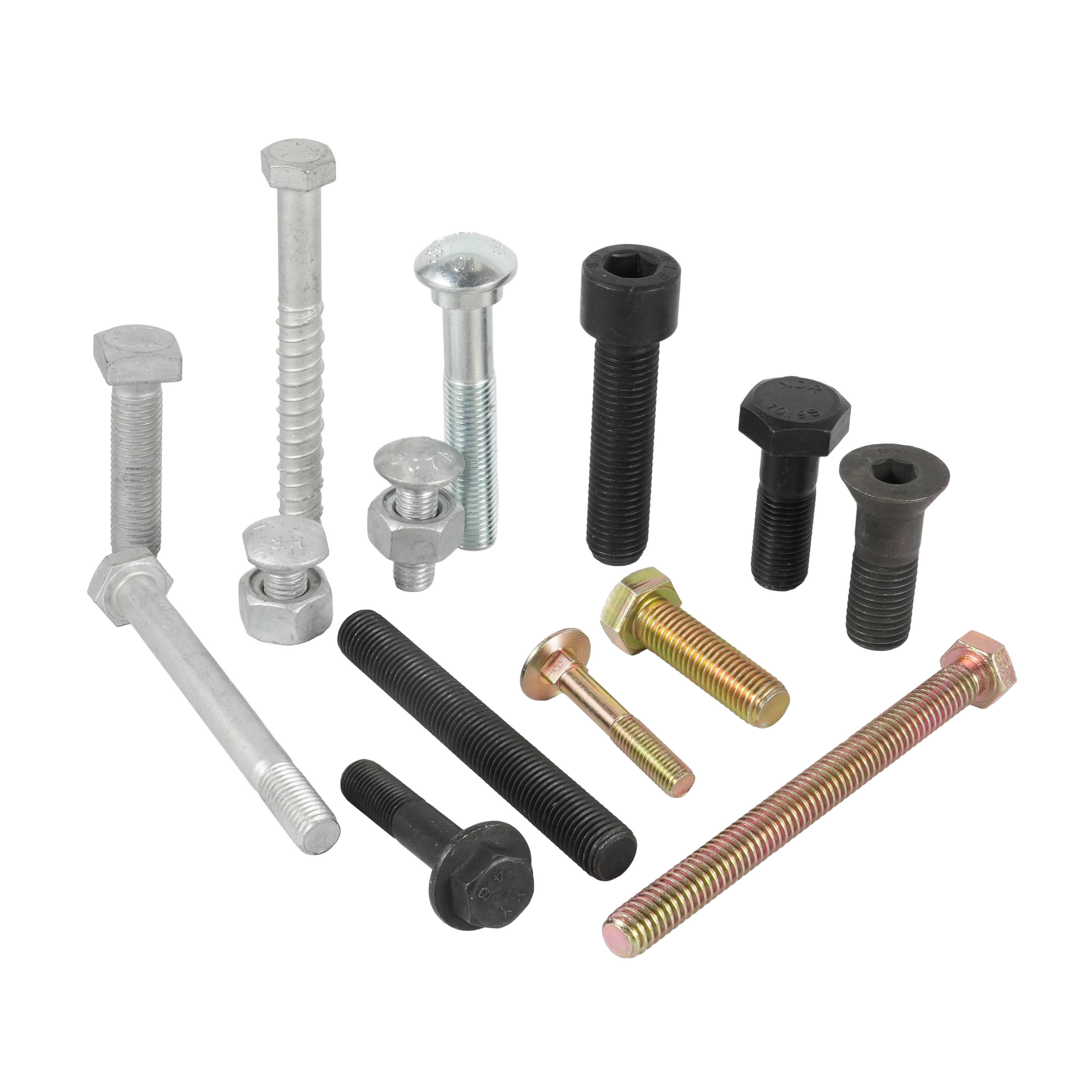Understanding the World of Precision Engineering Hardware
In the diverse landscape of industrial manufacturing and construction, custom bolts represent the epitome of precision engineering. These specialized fasteners play a crucial role in countless applications, from aerospace projects to architectural marvels. When standard off-the-shelf solutions fall short, custom bolts step in to provide the exact specifications needed for challenging projects.
The market for custom bolts has evolved significantly over the past decade, with manufacturers now offering unprecedented levels of customization. Whether it's unique thread patterns, specialized materials, or specific tensile strengths, modern manufacturing capabilities have expanded the possibilities for what these essential components can achieve.
Essential Components of Custom Bolt Manufacturing
Material Selection and Properties
The foundation of any custom bolt begins with material selection. High-grade steel alloys remain the most common choice, offering excellent strength-to-weight ratios and corrosion resistance. Stainless steel variants, particularly 316 and 304 grades, excel in marine and chemical processing environments where exposure to harsh elements is constant.
Advanced materials like titanium and Inconel allow custom bolts to perform in extreme conditions, offering superior strength at high temperatures and exceptional resistance to oxidation. For specialized applications, manufacturers may recommend exotic materials such as bronze alloys or super duplex stainless steel.
Manufacturing Processes and Techniques
The production of custom bolts involves sophisticated manufacturing processes that ensure precision and consistency. Cold forming, a popular method, produces bolts with superior strength characteristics and excellent thread quality. Hot forging becomes necessary for larger diameter bolts or when working with certain high-strength materials.
Modern CNC machining enables manufacturers to achieve incredibly tight tolerances and complex geometries that weren't possible with traditional methods. This precision is particularly important when custom bolts must integrate seamlessly with existing equipment or structures.
Design Considerations for Custom Bolt Applications
Load Requirements and Stress Analysis
Engineering teams must carefully analyze the loads and stresses that custom bolts will encounter during service. This includes consideration of static loads, dynamic forces, thermal expansion, and potential vibration effects. Advanced finite element analysis (FEA) software helps engineers optimize bolt designs for specific applications.
The preload or clamping force generated by custom bolts is crucial for joint integrity. Engineers must account for factors such as thermal cycling, joint relaxation, and potential loss of preload over time when specifying bolt designs and installation procedures.
Environmental Factors and Coating Selection
Environmental conditions significantly influence the selection of surface treatments and coatings for custom bolts. Zinc plating offers good corrosion protection for general applications, while specialized coatings like PTFE or ceramic-based solutions provide enhanced wear resistance and anti-galling properties.
For extreme environments, designers might specify multiple coating layers or advanced surface treatments like nitrocarburizing. These treatments not only protect against corrosion but can also enhance the bolt's mechanical properties and service life.
Quality Assurance and Testing Protocols
Dimensional Verification Methods
Quality control for custom bolts begins with precise dimensional inspection. Advanced measuring equipment, including optical comparators and coordinate measuring machines (CMMs), verify critical dimensions to ensure compliance with specifications. Thread geometry receives particular attention, with specialized gauges and measurement systems confirming proper thread form and pitch.
Surface finish measurements and roundness checks help validate manufacturing quality and ensure proper fit in assemblies. Modern inspection techniques may include laser scanning for complex geometries or when 100% inspection is required.
Material Testing and Certification
Comprehensive material testing validates the mechanical properties of custom bolts. Tensile testing determines ultimate strength and yield points, while hardness testing confirms proper heat treatment results. Chemical analysis ensures material composition meets specified requirements.
Many applications require specific certifications and documentation. This might include material test reports (MTRs), proof load testing results, and traceability documentation linking raw materials to finished products.
Procurement Strategies and Cost Optimization
Volume Considerations and Lead Times
Successful procurement of custom bolts requires careful planning and consideration of production volumes. While small quantities might be appropriate for prototyping or urgent repairs, larger volume orders typically offer better cost efficiency. Understanding minimum order quantities and their impact on unit costs helps optimize purchasing decisions.
Lead times for custom bolts vary significantly based on complexity, material availability, and manufacturing processes required. Planning for these lead times and maintaining appropriate inventory levels helps prevent costly production delays.
Total Cost Analysis
When evaluating custom bolt solutions, buyers must consider the total cost of ownership rather than just the initial purchase price. This includes factors such as installation time, potential maintenance requirements, and expected service life. Higher quality custom bolts might command premium prices but often deliver better value through improved performance and longevity.
Secondary costs such as specialized installation tools, training requirements, or specific handling procedures should factor into the overall cost analysis. Understanding these aspects helps organizations make informed decisions that balance immediate costs against long-term value.
Frequently Asked Questions
What are the typical lead times for custom bolts?
Lead times for custom bolts typically range from 2-8 weeks, depending on complexity, material availability, and order volume. Simple modifications to standard sizes might be completed more quickly, while complex designs or exotic materials may require longer lead times.
How do I determine the correct material for my custom bolt application?
Material selection should consider factors including operating temperature, chemical exposure, mechanical loads, and environmental conditions. Working with experienced manufacturers or engineering consultants can help identify the optimal material based on these requirements and cost considerations.
What documentation should I expect with my custom bolt order?
Standard documentation typically includes material certificates, dimensional inspection reports, and any required compliance certifications. Specific industries may require additional documentation such as PPAP submissions, DFARS compliance statements, or specific testing results.

